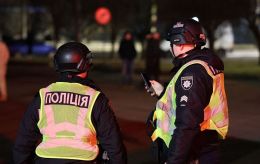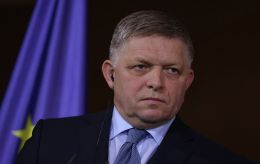Stoltenberg: We must support Ukraine in good and bad times
 NATO Secretary General Jens Stoltenberg (photo: Getty Images)
NATO Secretary General Jens Stoltenberg (photo: Getty Images)
Ukraine needs to be supported in its fight against Russian aggression. War is a variable process, so support should be provided in good times and bad, states NATO Secretary General Jens Stoltenberg in an interview with the German ARD, quoted by Deutsche Welle.
The NATO Secretary General believes that military support for Ukraine is in the interests of the Alliance itself.
"We need to understand that if President Putin wins, Ukraine will face a tragedy. But it will also be dangerous for us one day. So it is in our interest that Ukraine survives," he said.
At the same time, Stoltenberg said that we need to be prepared for "bad news". Therefore, support for Ukraine should continue.
"We must also be prepared for bad news. The course of the war is not a steady but a changing process. We must support Ukraine in good times and bad. The current war is a war of attrition, a battle for efficiency, a battle for logistics," the Secretary General added.
Commenting on the Ukrainian counter-offensive, Stoltenberg said that the course of events is difficult to predict. He emphasized that the Ukrainian military managed to inflict significant losses on the Russians. These include missile attacks on the occupiers' rear, the destruction of aviation, and the unblocking of a part of the Black Sea.
"This means that they can hold the sea corridor, and ships can again transport grain from Ukraine through the Black Sea. These are significant successes, even if the front line has not been moved," he added.
Ukraine's path to NATO
On September 30, 2022, it became known that Ukraine was applying for NATO membership under an accelerated procedure. Ukraine expected to receive an invitation to join NATO during the summer summit in Vilnius, but this did not happen.
NATO Secretary General Jens Stoltenberg emphasizes that Ukraine will not be able to join the Alliance until active hostilities end.
Ukraine received recommendations for accession from NATO. This was the result of the NATO-Ukraine Council, which met in Brussels on November 29. The recommendations relate to the initial reforms needed to join the Alliance.

